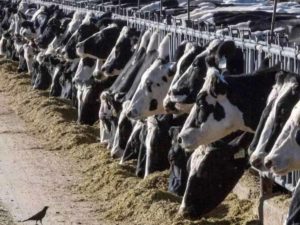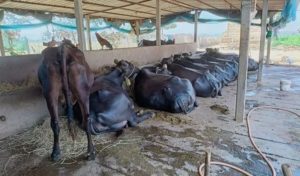If all goes well, that means a rise in demand and additional income for a struggling sector. CGTN’s Paulo Cabral reports from one of the country’s main dairy and milk-producing regions, in the southern state of Rio Grande do Sul.
Brazilian dairy producers are entering a new and rapidly expanding market. Earlier this year, the Chinese government authorized two dozen Brazilian plants to begin exporting dairy products to the Asian nation, where dairy consumption has been steadily rising in recent years. French multinational Lactalis is Brazil’s biggest dairy producer and is enthusiastic about the new deal.
“Lactalis already exports high-quality products to China originated from its plants in Europe and especially in France. And we think it’s great to have the opportunity to ship to the Chinese market from Brazil as well,” said Guilherme Portella, Spokesperson for Lactalis.
One of the 24 dairy plants in Brazil authorized to export to China. Powdered milk is by far the main important commodity in international dairy markets but producers here also hope to sell their products of higher added value, like cheese and butter.
Currently, Brazilian farmers produce only about enough dairy to cover the country’s domestic needs. But this industry representative says the sector is ready to respond to an increase in international demand.
Alexandre Guerra, President, Union of Dairy Producers of the state of Rio Grande do Sul told us, “We have good land, good soil and good weather. We can expand pastures and we also have production of grains to give good quality feed to the cows. So, if there is demand we can react quickly and increase our production to be able to fulfill it.”
Further down the production chain, farmers also hope to benefit from increased trade with China. According to the Brazilian government, there are 1.2 million small dairy farmers in the country, who have been forced to cope with low product prices. This family-run farm has about 100 cows and output of six thousand liters of milk per day, using a fully automated robotic milking process.
“We have good quality milk in Brazil and I think it’s great to export it. We can increase our production and our quality if we have incentive and develop a market to sell it,” said Leandro Fell, one of the dairy farmers.
Hopes the opening of the Chinese market will lead to a domino effect and other emerging markets will follow China’s lead and also look to Brazil as a source of dairy, confident of a high level of standards Beijing is known to demand.










